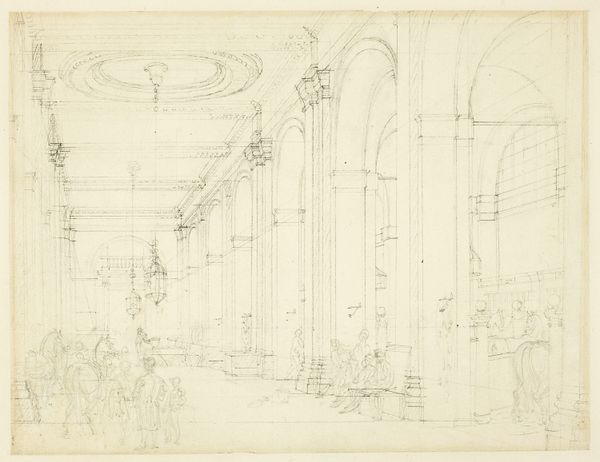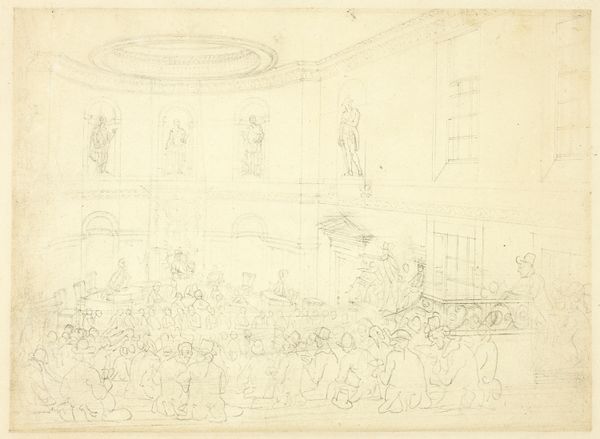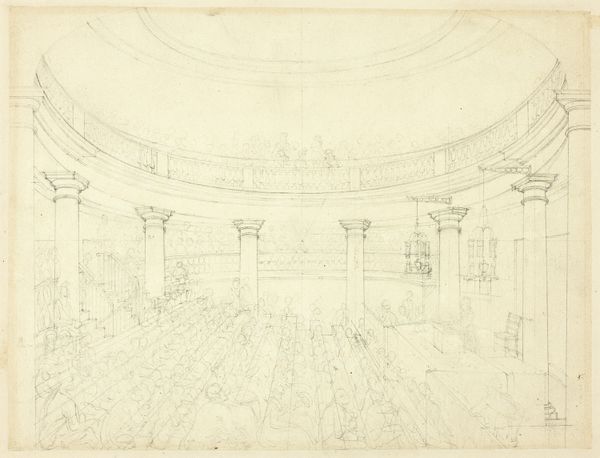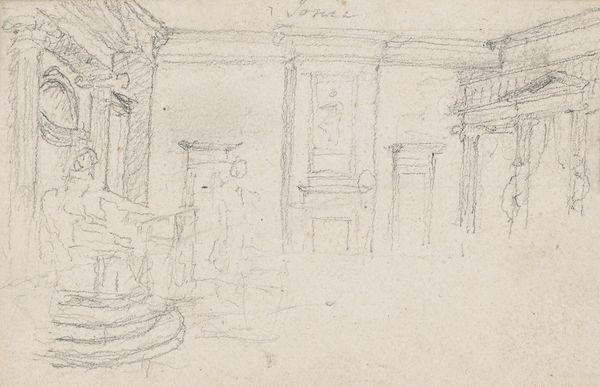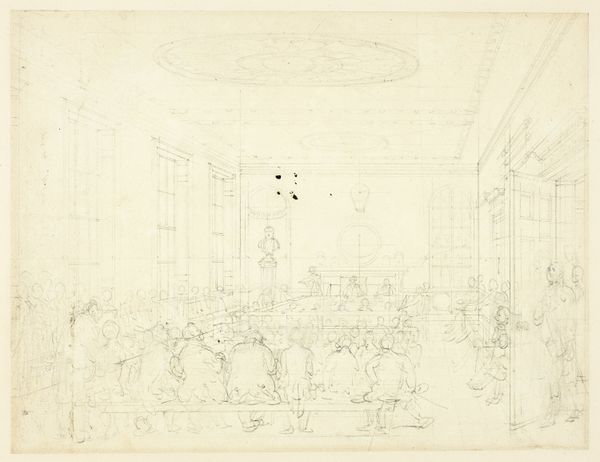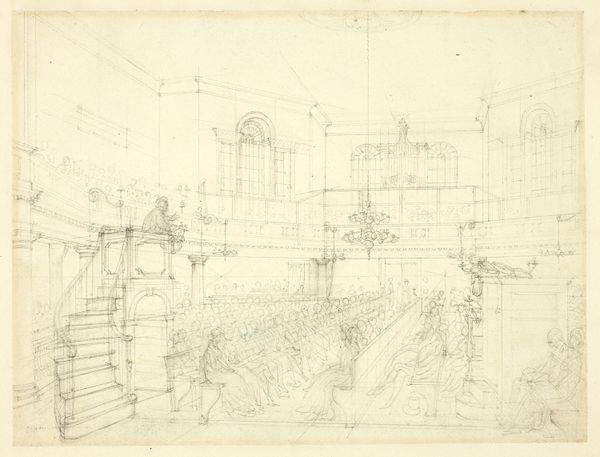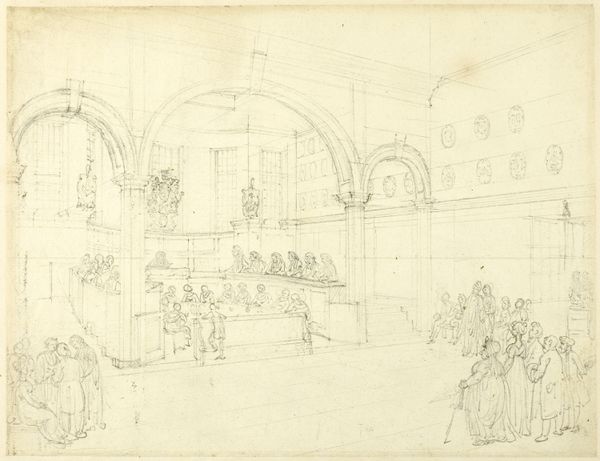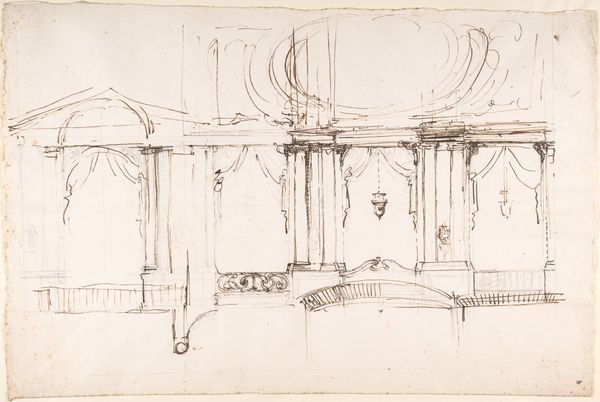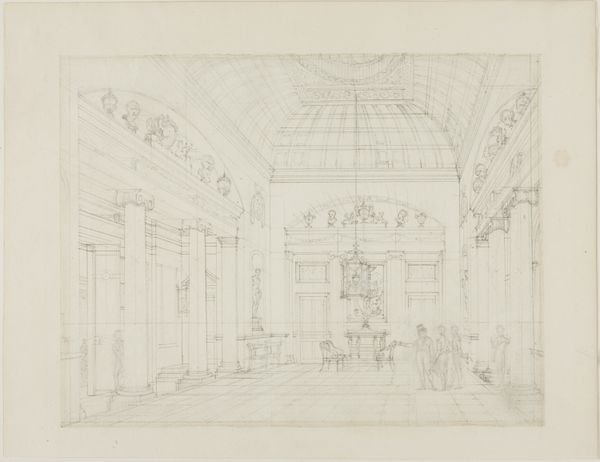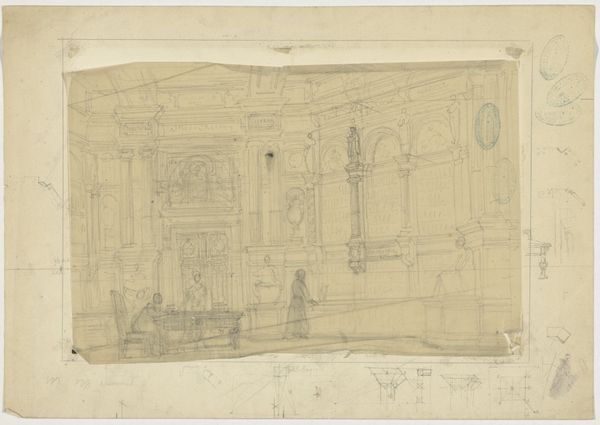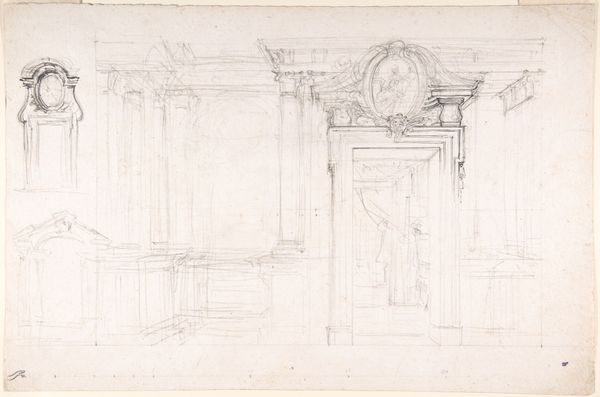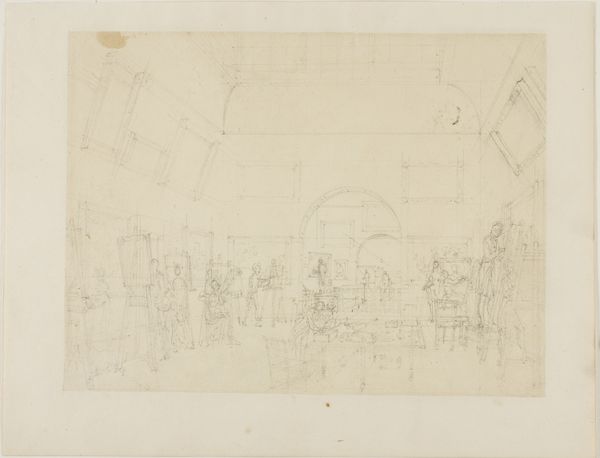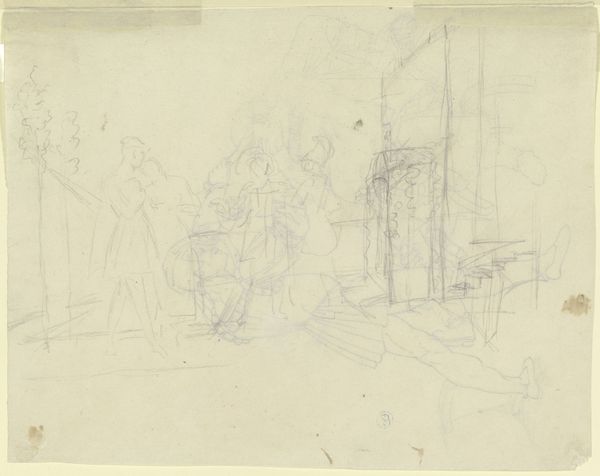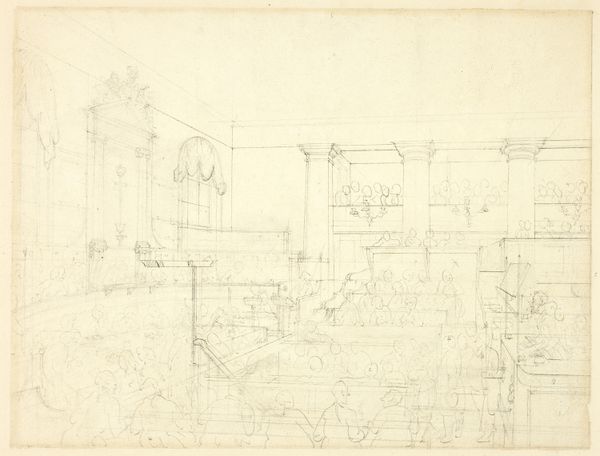
drawing, paper, pencil, architecture
#
drawing
#
16_19th-century
#
french
#
etching
#
paper
#
pencil
#
line
#
history-painting
#
architecture
#
realism
Copyright: Public Domain
Auguste Raffet captured the National Assembly in Frankfurt's Paulskirche in this sketch. Completed in 1849, the artwork reflects a pivotal moment in German history, against the backdrop of the 1848 revolution. The Paulskirche, a symbol of unity, became the meeting place for a parliament elected to create a unified German nation. Raffet’s sketch invites reflection on the aspirations and failures of this movement. Consider that it was dominated by middle-class intellectuals, lawyers, and professors, and lacked representation from the working class. This composition prompts us to reflect on whose voices were amplified and whose were silenced. The revolution ultimately failed, leaving a legacy of unfulfilled dreams and questions about national identity. Think about the emotional weight of this historical event. It speaks to the ongoing struggle for representation and self-determination. The sketch is a reminder that the pursuit of democracy is neither linear nor assured.
Comments
No comments
Be the first to comment and join the conversation on the ultimate creative platform.
